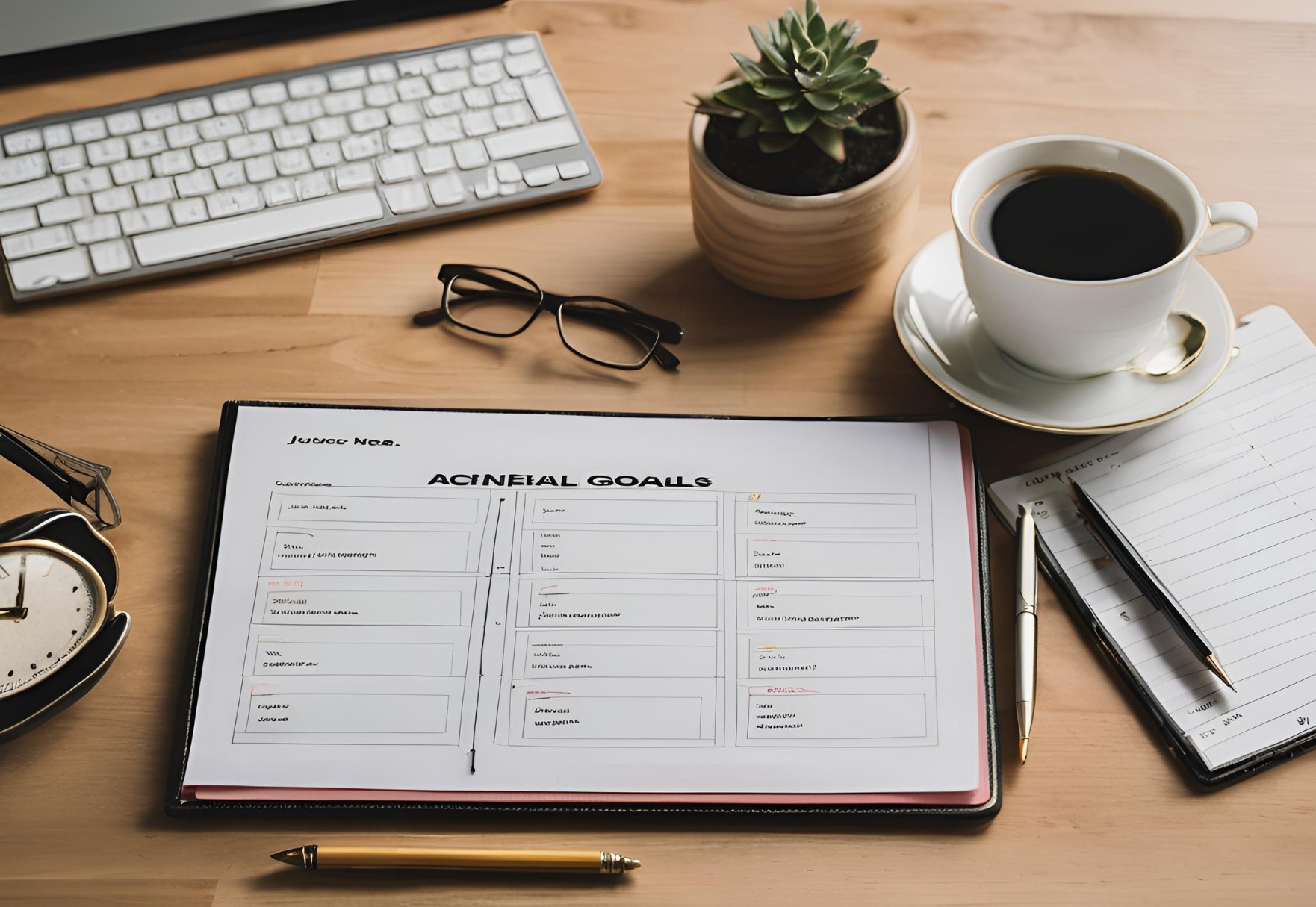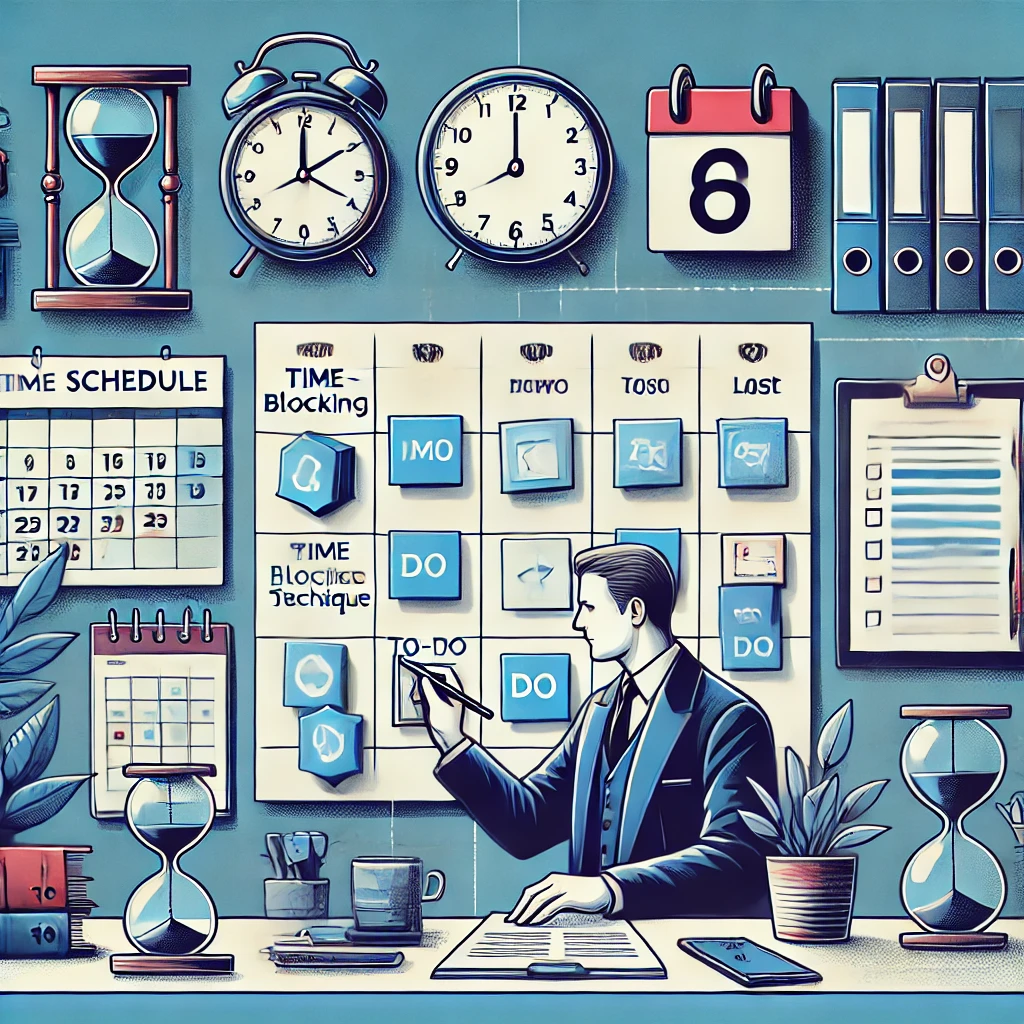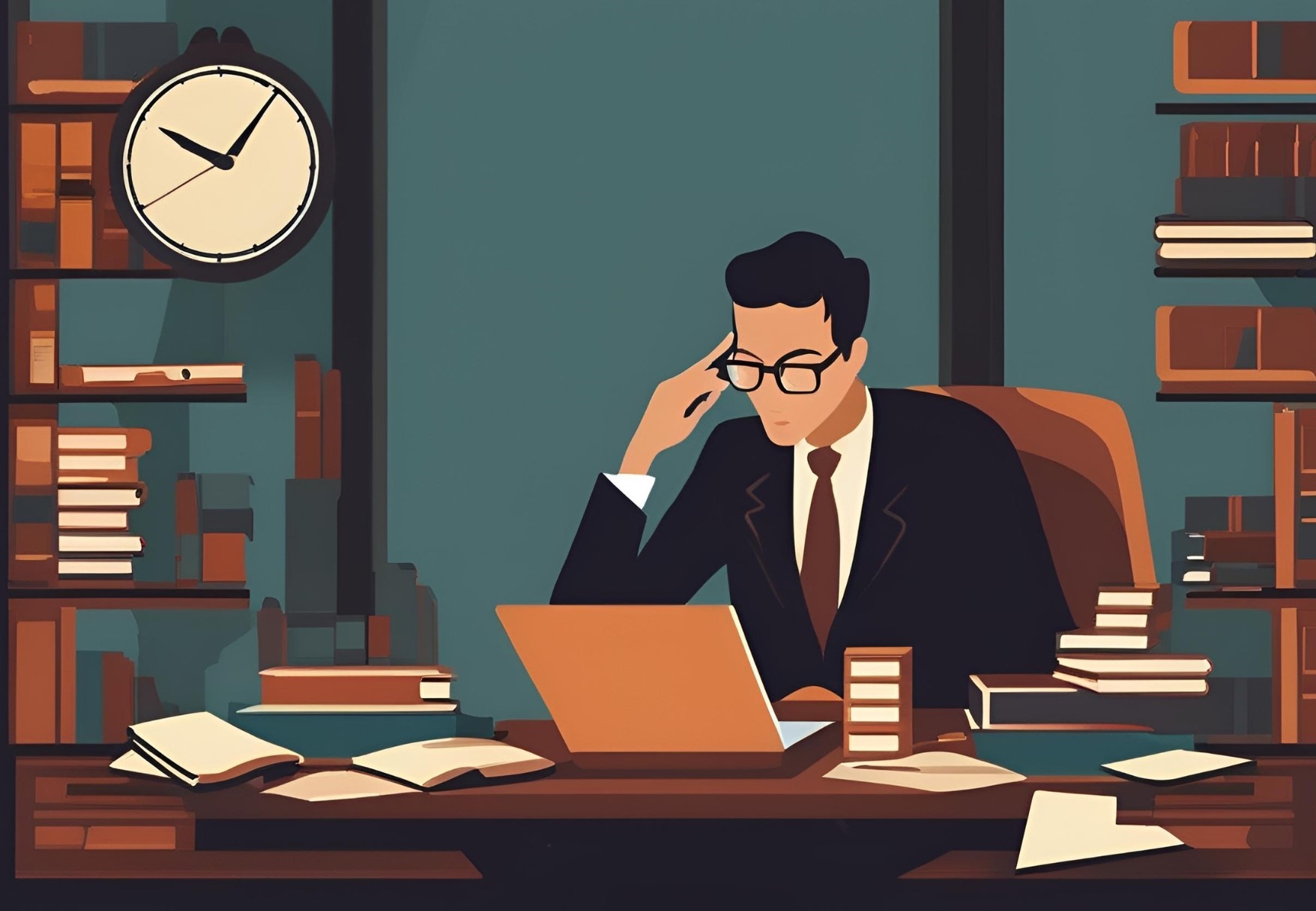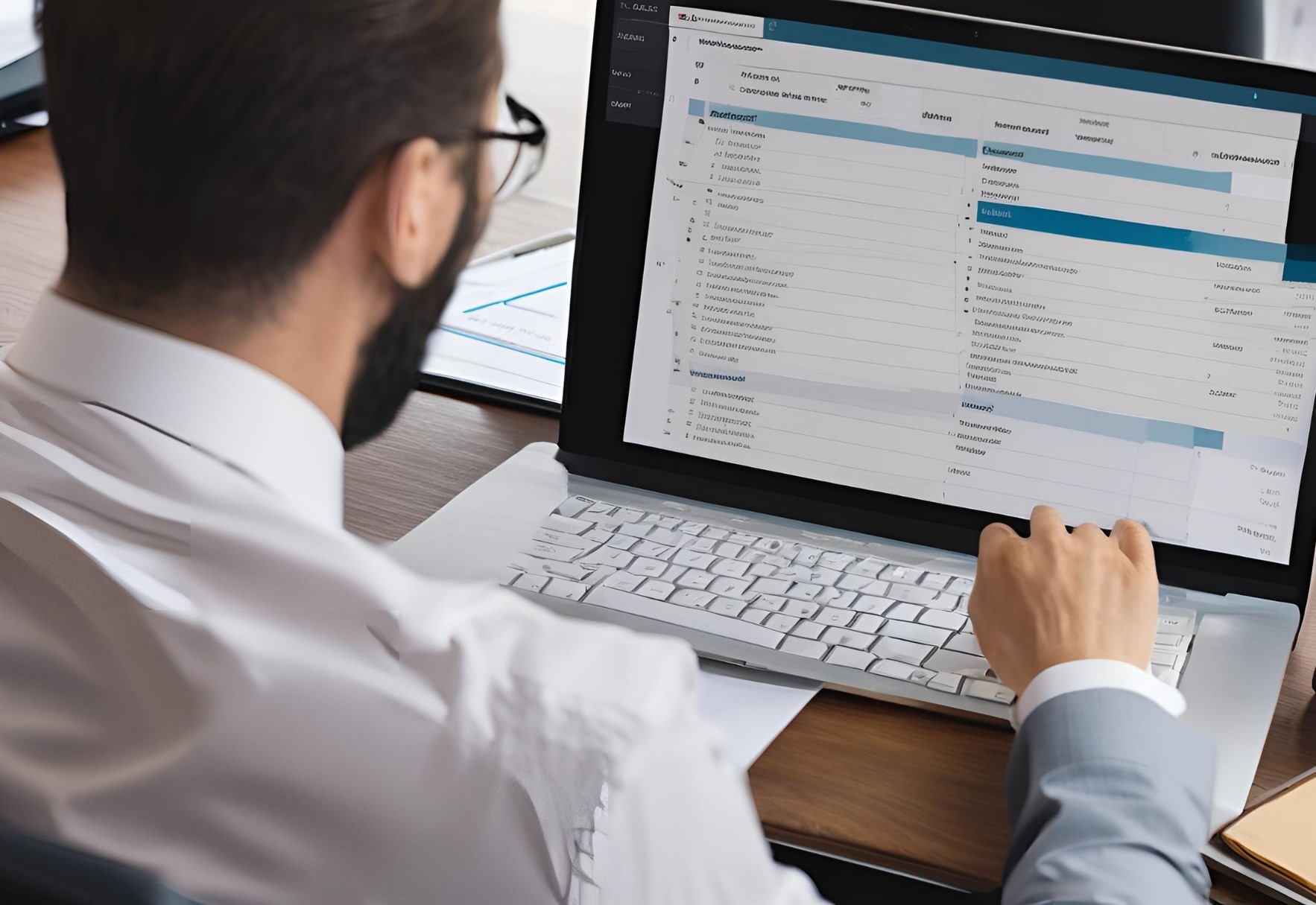Lawyer time management is key for those who want to work more efficiently in the legal profession. Strong time management skills help professionals stay organized, meet deadlines, and complete critical tasks without unnecessary pressure. By addressing common time management challenges, lawyers can better juggle multiple responsibilities while maintaining high standards of work.
By following these practices, legal professionals can handle high priority tasks, respond to growing client demands, and stay focused on key tasks throughout the day. Clear planning improves client communication and ensures that essential work is completed on time. This structured approach is especially important in a fast-paced environment where missing details can have serious consequences.
Using the right tools, such as legal practice management software, plays a major role in improving efficiency. These platforms support document management, reduce reliance on manual processes, and streamline workflows. When combined with effective time management skills, technology helps law firms stay organized, track progress, and manage billing more accurately.
Multitasking is often counterproductive in the legal profession. Trying to handle too many tasks at once can reduce quality and slow progress. Research shows that focusing on one task at a time improves accuracy and helps lawyers complete critical tasks more efficiently, especially when dealing with complex cases or detailed documentation.
Modern solutions also improve financial operations. Using updated payment methods, such as credit cards, helps firms get paid faster and improves cash flow. Firms that move away from outdated systems and adopt integrated tools see fewer delays, better client communication, and more consistent performance across teams.

Lawyers should use tools like digital calendars to help manage their time. They should also make lists and block out time for important tasks. Avoiding distractions and keeping their workspace neat will also help.
It’s also good for lawyers to schedule times when they won’t be disturbed. And they should not take on too much work to keep their work and life balance. This advice was first shared in December 2015 and was updated by November 2023. These tips are still very useful for lawyers today.
Why Time Management for Lawyers is Crucious
Lawyers need to manage time well to keep their firms running smoothly and be productive. They have a lot on their plates, including work that pays, growing the business, and personal life. Good time management helps them balance it all without getting stressed.
To handle their work better, lawyers should plan meetings and important tasks well in advance. Making time for business growth regularly can increase productivity a lot. It’s also smart to hold meetings at times when they won’t be bothered.
Connecting with people you know or have worked with can open new doors. By asking the right questions and really listening, you can find fresh chances to do business. Plus, getting advice from clients can offer great tips and introduce you to others they know who might need your services.
Using a calendar to plan when to network follow up on leads, and work on growing the business can make a big difference. It’s key to stick to these plans and use time wisely to keep the firm operating well. By going after easy wins first, lawyers can grow their business and achieve more success.

Managing your time is key for lawyers, as it takes 10 hours at work to bill for just 8. How you bill your clients also matters, with some wanting time rounded to the nearest quarter or tenth of an hour. So, being precise with time is crucial.
RescueTime, for $9.95 a month, is a great tool for keeping track of what you do online. The Pomodoro Technique, working on one thing for 25 minutes then taking a 5-minute break, can also help. You can use phone apps or computer timers to make this method even more efficient for lawyers.
Being smart about what tasks come first is another big part of the job. Spending just 30 minutes every Friday planning the next week can free lawyers from worrying about what’s next. It’s about being organized and having a clear plan to reach your goals, which makes things easier and less stressful.
Set Clear and Achievable Goals
Lawyers need clear goals to stay on track and use their time and resources wisely. These goals make a plan for the work and make clients happier.

Importance of Goal Setting in Law Firms
Setting goals is very important for lawyers. It connects what the firm wants with doable steps for success. For example, firms can try to reach targets like upping the money they collect or having more new client meetings. By keeping track of how well they’re doing, firms make sure they’re heading in the right direction.
Crafting SMART Goals
Turning big wishes into actual plans with SMART goals is a game-changer in law offices:
- Specific: Have very clear and specific goals. For instance, aim to have 10% more people clicking on your email newsletter by a certain date.
- Measurable: It’s important to measure progress. An example is wanting to see a 5% increase in new cases by the end of the year.
- Achievable: Make sure your goals are doable and fit your firm’s abilities. You might plan to work 10 more hours each month in the coming year.
- Relevant: Goals must help the firm’s bigger aims. They could be part of a plan to grow the business and find more success.
- Time-bound: Giving goals a deadline makes sure they happen. For example, set yourself to read an important book every month to grow your skills.
Tracking Progress
It’s key to keep an eye on how the firm is doing to reach its goals. Using tech tools helps by giving up-to-date info and stats. Checking in on goals often, like increasing your work hours by 10% soon, helps see if changes are needed. Good tracking means better goal success and helps with making smart plans for the future.
Prioritize Tasks Effectively
For attorneys, knowing how to prioritize tasks is vital. It helps keep focus and stay productive in a busy legal field. They must figure out what needs their immediate attention and what can wait a bit. This way, they can handle their workload better and lower stress levels. Now, we’ll look at some strategies to do this well.
Identifying Urgent vs Important Tasks
It’s crucial to tell apart urgent from important tasks for good time management. Urgent tasks need to be done right away, like answering client emails. Important tasks, however, help with long-term goals and need careful thought, such as making plans for a big case.
Using the Eisenhower Matrix
The Eisenhower Matrix in legal work is very helpful. It sorts tasks into four groups based on their urgency and importance. This helps attorneys know what to tackle first. They can focus on the pressing and essential tasks, then work on the others as time allows. It’s a smart way to manage their time better and get more done.
Avoiding Procrastination Pitfalls
Dealing with procrastination is a big part of managing tasks well. Many lawyers put off tasks because they seem too big to handle at once. To fight this, they should break the work into smaller steps. Then, they can use time blocks to work on each part. This approach makes it easier to start and keeps progress steady.
Avoiding things that break their focus, like constant emails and phone calls, is also crucial. Research indicates that every time a lawyer is interrupted, it takes up to 25 minutes to get back on track. A clear schedule that lists top priorities and minimizes distractions is key to staying productive.
Leverage Legal Time Tracking Software
Legal time tracking tools can change how lawyers work. They help lawyers be more productive and precise with billing. These tools record time and tasks, making sure law firms bill clients correctly. They also show what may be distracting the team from work.
![]()
Benefits of Time Tracking Tools
Time management software helps lawyers get more work done. It makes sure their time is used well, which helps keep clients happy. This means more accurate bills, clear invoices, and better profits. These tools are better than the old ways, like tracking your time by emails and calls. They cut down on mistakes in billing and save time.
Popular Time Tracking Software
| Many time tracking tools are out there for different needs and budgets. For example, Buddy Punch lets you try it out for free for 7 days. My Hours and others have cheap plans, too. Deltek | Replicon starts at $12 a month, and TimeSolv at $43.95 user/month. You can also check out LawBillity, Clio, and Clockify for great features and prices. |
Integration with Billing and Invoicing
One big plus of these tools is how they work with billing software. Many lawyers use billing software, and most say it saves them time. It makes creating invoices easier, helping many law firms. Also, tools like MyCase can help lawyers handle more cases and bill more hours. They show these tools can make a big difference for law practices.
Create and Follow Task Lists
Making a task list is key for many lawyers to keep up with their busy days. It’s really vital to organize your tasks. If you don’t, expect lots of last-minute rushes and late nights. Using a detailed daily checklist can make sure you don’t miss any important duties.
Daily, Weekly, and Monthly Lists
It’s important to split your to-dos into daily, weekly, and monthly tasks. Daily jobs might be calling your clients or hitting court deadlines. Weekly goals could be checking on cases or doing some research. And monthly plans are for big projects and goals. This way, you get a full picture of what you need to do.
Digital vs Physical Lists
Deciding between digital and paper to-do lists is up to you. Digital ones come with cool tools, like reminders. On the flip side, paper can be nice to actually see your progress. Platforms like Clio Manage make digital organizing easy, boosting your efficiency.
Keeping Lists Organized and Updated
Keeping your lists fresh is key to time management. The Pareto Principle teaches us to focus on the most important jobs. Things like Pomodoro and time-blocking can really help structure your day. It’s smart to tackle tough tasks in the morning.
Having a good task list is a must for lawyers who want to stay on top of their work. It helps keep stress low and makes for a happier career. This way, you don’t let bad time management ruin your day.
Establish a Structured Schedule
Building a firm schedule is key for legal pros to manage time better. It allows them to match their active times with important tasks. This way, high-priority work gets done when they’re at their best.
Legal professionals spend most of their day on things like research and meetings. But by using methods like time-blocking, they can do more. The Pomodoro Technique, with its 25-minute intervals, boosts their output by up to 30%.
Using tools like case software can pump up a law firm’s efficiency by 20%. Setting clear rules at work keeps ‘time vampires’ away. This means fewer interruptions and more done work.

Planning well every day makes lawyers 40% more likely to win cases. They also cut down on stress by protecting their free time. Giving tasks to others can open up 15-20% more time for essential work too.
Spending just 15 minutes daily on to-do lists keeps lawyers on track. They allocate time for emails and calls, making their days more productive. This leads to better work and less stress.
Tackle One Task at a Time
For lawyers, doing one thing at a time is key to being efficient and productive. It helps improve the quality of the work. Also, it’s a great way to manage time better, which is very important in the legal field.
Downsides of Multitasking
People think doing many things at once makes them work better. But, in the legal world, multitasking can lead to less focus, more mistakes, and lower performance. Knowing that our attention lasts only 20 to 45 minutes reminds us to stay focused on one task.
Focus Techniques
Lawyers can boost their productivity by using smart focus methods. Time blockers let them work on one task without interruptions. This uses the natural 90-120 minute cycles for better performance. Also, tools to track time help with accurate billing.
How to Implement Task Batching
Batching tasks is a strong strategy for lawyers to focus better. It means doing similar jobs at the same time. This way, they don’t waste time switching between things. For example, they can answer all their emails at once. Doing this can help manage their schedules better and use small time gaps wisely.
Knowing the downsides of multitasking and using the right focus methods can really help lawyers. These strategies can make their work better and help them be more productive. So, lawyers can handle their busy days better and get more done.
Eliminate Distractions
Minimizing distractions is key for lawyers because it boosts productivity. They face many interruptions every day. These can range from phone calls to social media updates. Each distraction can eat up 25 minutes of their time. So, it’s crucial to find ways to work without being interrupted.

Common Distractions for Lawyers
Lawyers are often pulled away by phone calls, emails, and social media. They try to juggle many things at once. But our brains can’t really do multiple tasks well. Instead, it slows them down to keep switching.
Tools to Minimize Interruptions
Productivity tools are a big help for lawyers. These tools help set specific times for communication. They also allow for uninterrupted work blocks. Using software from services dedicated to time management can be very beneficial. It makes work more productive and efficient.
Creating a Distraction-Free Workspace
Making a workspace free of distractions is important. It’s all about keeping your area tidy. Time blocking can also be a game-changer. It’s when you break your work into chunks of 15 to 40 minutes each. This simple practice helps focus and gets things done.
Setting daily goals that are realistic is another winning strategy. It ensures important tasks don’t get pushed off. For more tips on setting up a workspace that boosts your work, check out the time management tips for lawyers. Learning to manage your time well can cut down on stress and raise your productivity levels.
Incorporating Regular Breaks
It’s key for lawyers to understand why taking breaks is important. This helps them stay productive and healthy. Working hours for lawyers vary a lot. Those in big firms often work 66 hours a week. But even in smaller firms, hours can range from 42 to 54. Government agency lawyers tend to work 40 hours a week. Yet, they sometimes work longer because of their job’s demands.
Taking breaks is crucial for lawyers due to their hectic schedules. These short rests help the mind refresh. This way, they can keep a good balance between work and life. A technique called time blocking is also useful. It helps lawyers focus fully on their tasks, making work more effective. It allows them to sort out their work by what’s most important.
Breaks help lawyers cut down on stress and do better at work. The Pomodoro Technique is one way to do this. It means working for 25 minutes and then taking a 5-minute break. This keeps their work quality high by giving them time to unwind.
Doing calming activities on longer breaks, like reading or meditating, greatly helps a lawyer’s mental state and happiness at work. Stressing the value of breaks is about more than just a reasonable work-life balance. It’s about staying healthy and doing great work. Taking time off in such a hard job is crucial for being your best both personally and professionally.
Master the Art of Saying “No”
Lawyers need to be assertive by learning when and how to say “no.” This is a key skill for legal professionals. It helps maintain productivity and well-being. By saying “no” at the right times, lawyers can stay focused and have a balanced work-life.
Identifying Unnecessary Commitments
Finding out what tasks are a must and what’s not is important. Lawyers can use tools like the Eisenhower Matrix to set priorities right. This lets them use their time where it matters most.
Strategies for Polite Declinations
Knowing how to say “no” politely is important for lawyers. A good way is to turn down a task by suggesting an alternative solution. This not only respects others but also helps maintain good professional relationships.
Maintaining Focus on Priorities
Staying focused on what’s important needs discipline and a plan. Lawyers have many tasks to manage, but they can use tools and delegate. With good organization and the ability to refuse some tasks, they can put their efforts where it really counts.
Delegate Tasks Appropriately
It’s key for lawyers to master delegation skills. This can make the workflow smoother and boost productivity. They should give tasks that don’t need legal smarts to junior staff. This includes things like filing, data entry, and handling calls.
Delegating well means giving clear tasks with deadlines. It also involves explaining why you’re passing a task off. This creates trust and gets things done right. Using a Delegation Matrix can help figure out who’s best for what job.

Automatic task assigning is a big deal for lawyers now. It helps manage work better, saving both time and money. Passing non-essential tasks to helpers can make a big difference. This can save money and make resources work better.
Making teams that can do different things can balance everyone’s work. It helps make sure everyone’s pulling their weight. This is especially true in legal tech, where various talents are needed. Training on how to delegate can help a lot in saving money and boosting what gets done.
As a summary, knowing how to delegate well is very important for lawyers. It helps make work more productive and clients happier. By assigning tasks wisely, lawyers can focus on what really pays off. This betters their own work and the service they give to clients.
Conclusion
The legal field can be overwhelming, especially in a high pressure legal environment, but proper time management makes daily work smoother and more sustainable. Busy lawyers face unique time management challenges as they juggle case preparation, meetings, court appearances, and routine administrative work. When time is not handled well, poor time management can quickly complicate time management, increase stress, and reduce overall effectiveness.
To work efficiently, lawyers must prioritize billable hours, manage routine tasks, and protect personal time to support a sustainable legal career. Strong systems help attorneys stay focused while handling repetitive tasks and meeting client expectations. Developing good time management habits allows lawyers to maintain momentum without sacrificing accuracy or professionalism.
Time management techniques such as the Eisenhower Matrix, SMART goals, time blocking, and the Pomodoro Technique are especially useful in the legal profession. These methods help lawyers focus on high-impact work while tracking billable hours accurately. Using time tracking apps makes it easier to record time spent on cases, align work with billing, and reduce administrative friction.
Technology also plays a critical role in efficiency. Tools like document automation tools reduce time spent on repetitive paperwork, while time tracking apps connect daily tasks directly to billable hours. When paired with effective document management, these tools help lawyers reclaim time and focus on higher-value work such as strategy and business development.
Delegation is another essential strategy. Assigning appropriate work to support staff helps lawyers focus on complex legal matters instead of low-value tasks. Whether delegating to in-house teams or external services, leveraging support staff reduces workload pressure and improves turnaround times. This balance allows attorneys to better manage billable hours while maintaining quality.
Ultimately, these strategies support a healthier workflow and a better work life balance. By managing time intentionally, protecting personal time, and relying on smart systems rather than manual effort, lawyers can perform effectively even in a demanding environment. Consistent planning, delegation, and technology adoption help legal professionals build long-term success without burnout.
Frequently Asked Questions
Why is time management crucial for lawyers?
Time management is essential because lawyers must balance demanding professional responsibilities with strict deadlines. Many lawyers struggle with juggling multiple cases, attending meetings, returning phone calls, and reviewing documents on a daily basis. Effective planning helps protect valuable time, manage firm responsibilities, and create a balanced schedule that supports consistent performance. Strong time management also allows lawyers to focus on deep work, which is critical when handling complex matters.
How can lawyers set clear and achievable goals?
Using the SMART method helps lawyers stay focused while managing different tasks throughout the day to day workflow. Clear goals support prioritising tasks and help lawyers align their work schedule with long-term objectives. This structured approach ensures progress even when work involves working across multiple cases simultaneously.
What is the best way to prioritize legal tasks?
Using the Eisenhower Matrix is great for sorting out tasks. It helps decide what’s urgent and what’s important. This way, lawyers can make smart choices about what to do first.
How does time tracking software benefit lawyers?
Time-tracking software helps lawyers work more effectively in several ways. It boosts their productivity and makes billing more accurate. It also works with billing systems and finds ways to work more efficiently.
Should lawyers use digital or physical task lists?
Lawyers can pick digital or physical lists based on what they like. Digital lists are easy to update and check anywhere. Physical lists offer a clear way to see your tasks. Both ways help to stay organized and not forget important jobs.
How can lawyers create a structured schedule?
Creating a good schedule means matching work times with when you work best. It involves mixing big tasks with smaller ones. Planning the day in clear sections helps use time well and finish your to-do list on time.
Why should lawyers tackle one task at a time?
Working on just one job at a time prevents multitasking problems. It keeps the work quality high and the speed up. Using single-tasking and grouping similar tasks together really makes things more efficient.
What are some time management challenges for lawyers, and how can they be minimized?
Distractions like phone notifications, being interrupted, and loud settings can be annoying. To handle them, use tools for managing alerts, set up rules for when you can be interrupted, and arrange your workspace for better focus.
How often should lawyers take breaks to maintain productivity?
Taking regular breaks is key to staying productive. Experts say a short break every 90 minutes is great for recharging the brain. It helps keep up focus and energy all day long.
How can lawyers effectively say “no” to non-essential tasks?
Turning down tasks you don’t need involves matching them with your main goals. Being politely firm and knowing when to share tasks helps. This way, you can stay focused on what’s most important.
What are the benefits of delegating tasks in a legal practice?
Delegating work lets lawyers use their time best and concentrate on key jobs. It also helps junior legal partners grow and be more responsible by giving them important duties.

More Posts
10 Tips to Optimize Your Monthly Reset Routine in 2024
Efficiently closing out each month with a structured monthly refresh can significantly enhance your overall productivity boost and well-being. As we step into 2024, establishing a well-thought-out reset routine becomes indispensable for ongoing life optimization. Reflecting...
9 Best Digital Weekly Planners for Students (Free & Paid)
In a world where digital solutions have taken over everywhere, students need to get up to speed on the latest tools that make their academic journey run a little more smoothly. A planner...
11 Common Mistakes to Avoid in A Weekly Progress Report
A Weekly Progress Report is key for sharing what we did, what we faced, and what we plan to do next. It shows what we've done, what we're facing now, and what we...
Unlock Success: Top 5 Productivity Apps for Students
Looking for the best productivity apps to get more done in 2026? But which productivity apps should you choose? We give you a thorough rundown of five productivity apps and software so you...